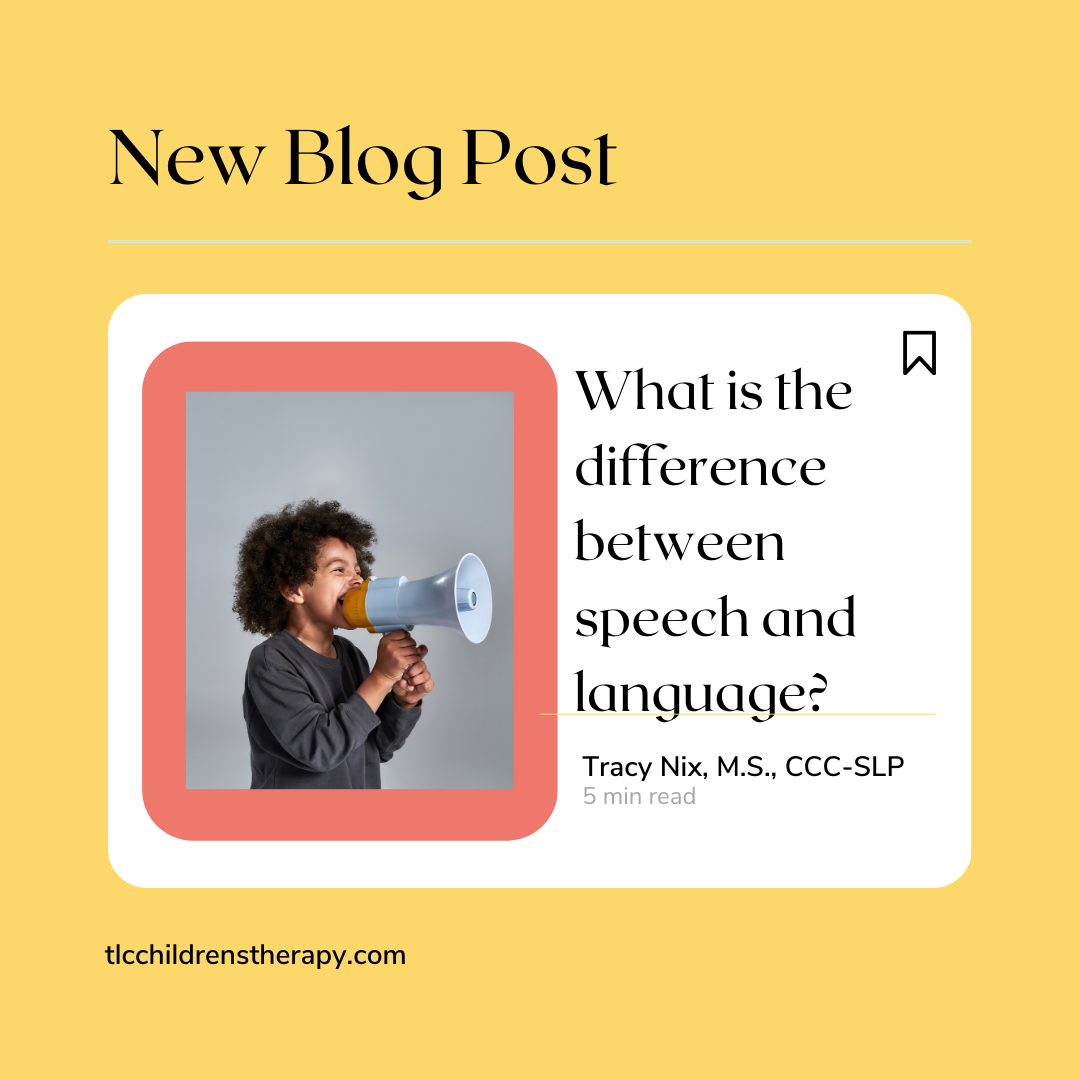
As speech-language pathologists, we treat many different types of communication difficulties. These types of communication difficulties typically fall under the category of either speech or language. Most people think of speech and language as the same thing, however they are actually two different types of communication.
Speech is how we say sounds or words. If a child has difficulty producing the /r/ sound, or leaves off the ending sounds of words when speaking, these would be considered speech difficulties. Stuttering and voice problems would also be considered speech difficulties because they have to do with the physical act of producing speech. Speech difficulties can make children hard to understand because they have trouble physically producing sounds or words.
Language refers to the words we use and how we use them to share ideas, interact with others and express our wants and needs. Language difficulties are more broad and can include things such as having difficulty understanding what others are saying, having difficulty learning or using new words, problems putting words or sentences together, and problems with the social use of language. Language difficulties are often a little harder for parents and caregivers to pinpoint. Often children with language learning difficulties are difficult to understand, but it is related to the fact that they are not expressing their ideas clearly as opposed to not producing sounds or words clearly.
Children can have difficulty learning and using speech, language or both. It can be very frustrating for children (or adults for that matter) to have problems understanding others and/or being understood. Speech-language pathologists (or speech therapists, for short) are adept at evaluating and treating all all types of communication difficulties. If you think your child may have a speech or language problem, please reach out so we can help pinpoint the difficulty and work towards improved communication skills.
